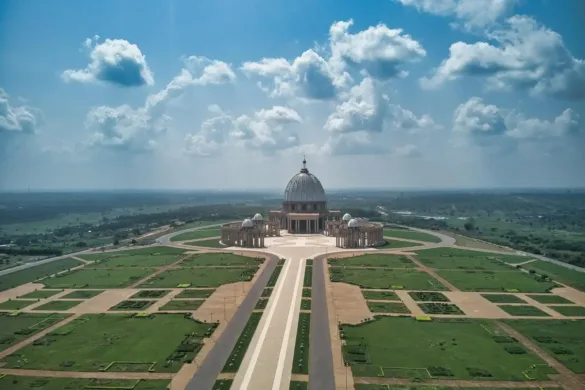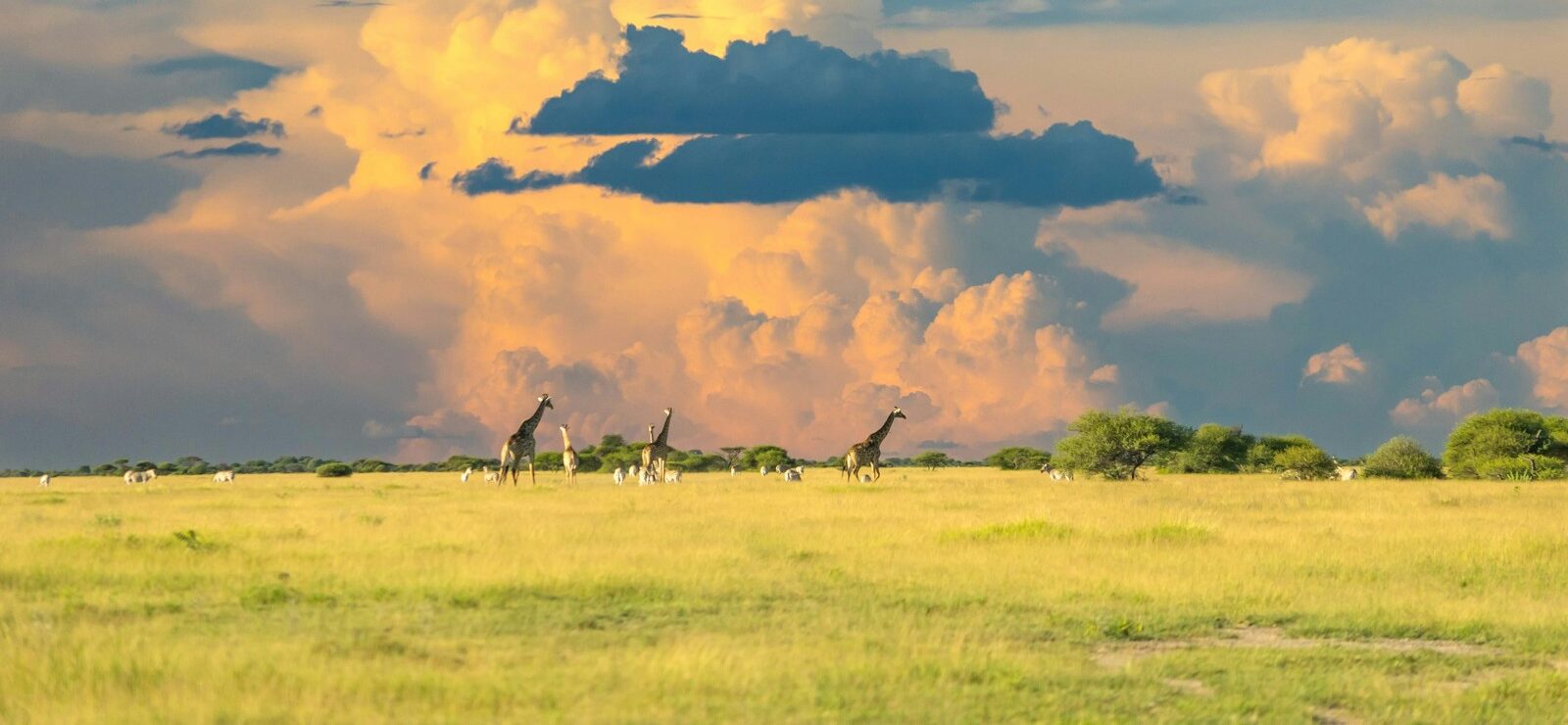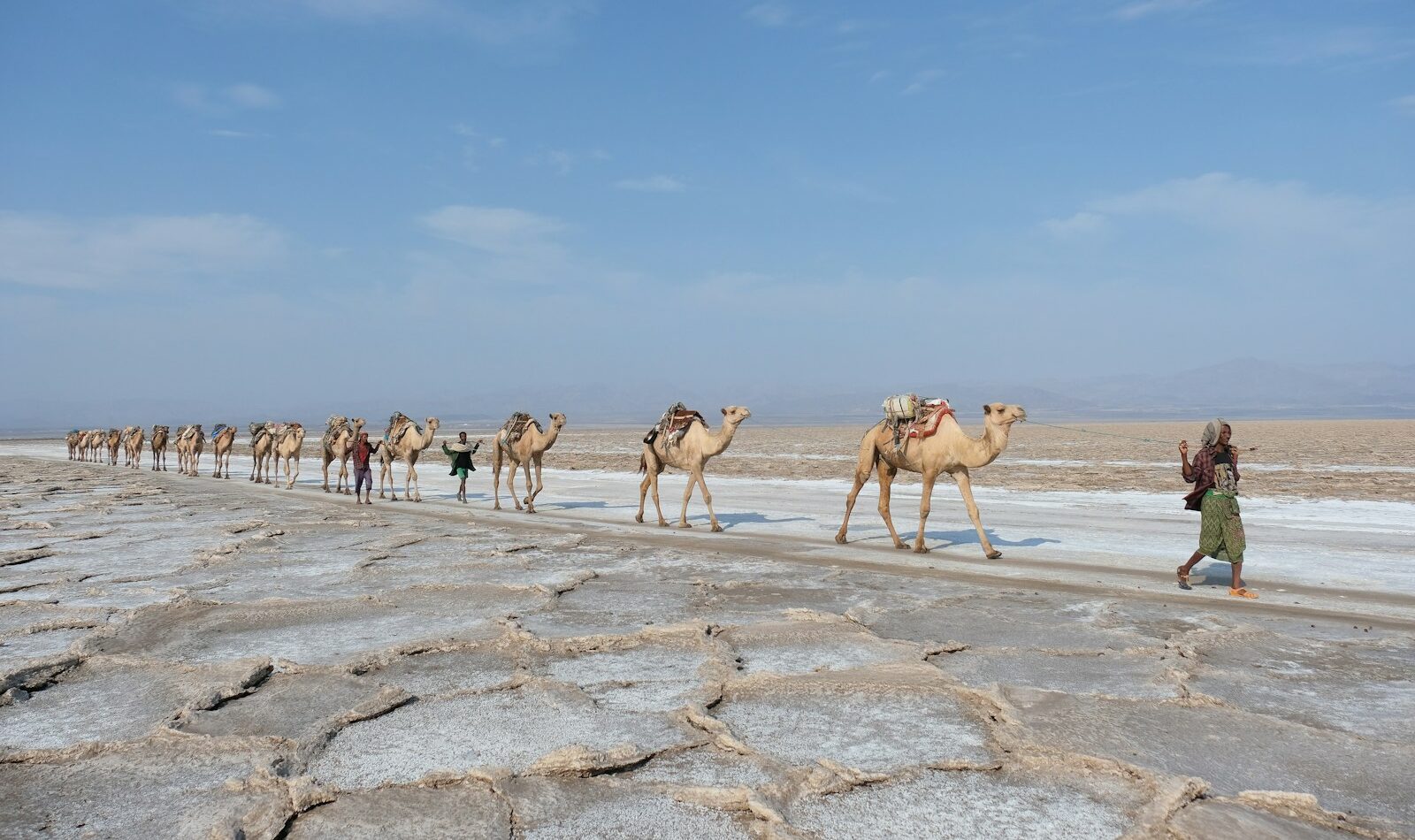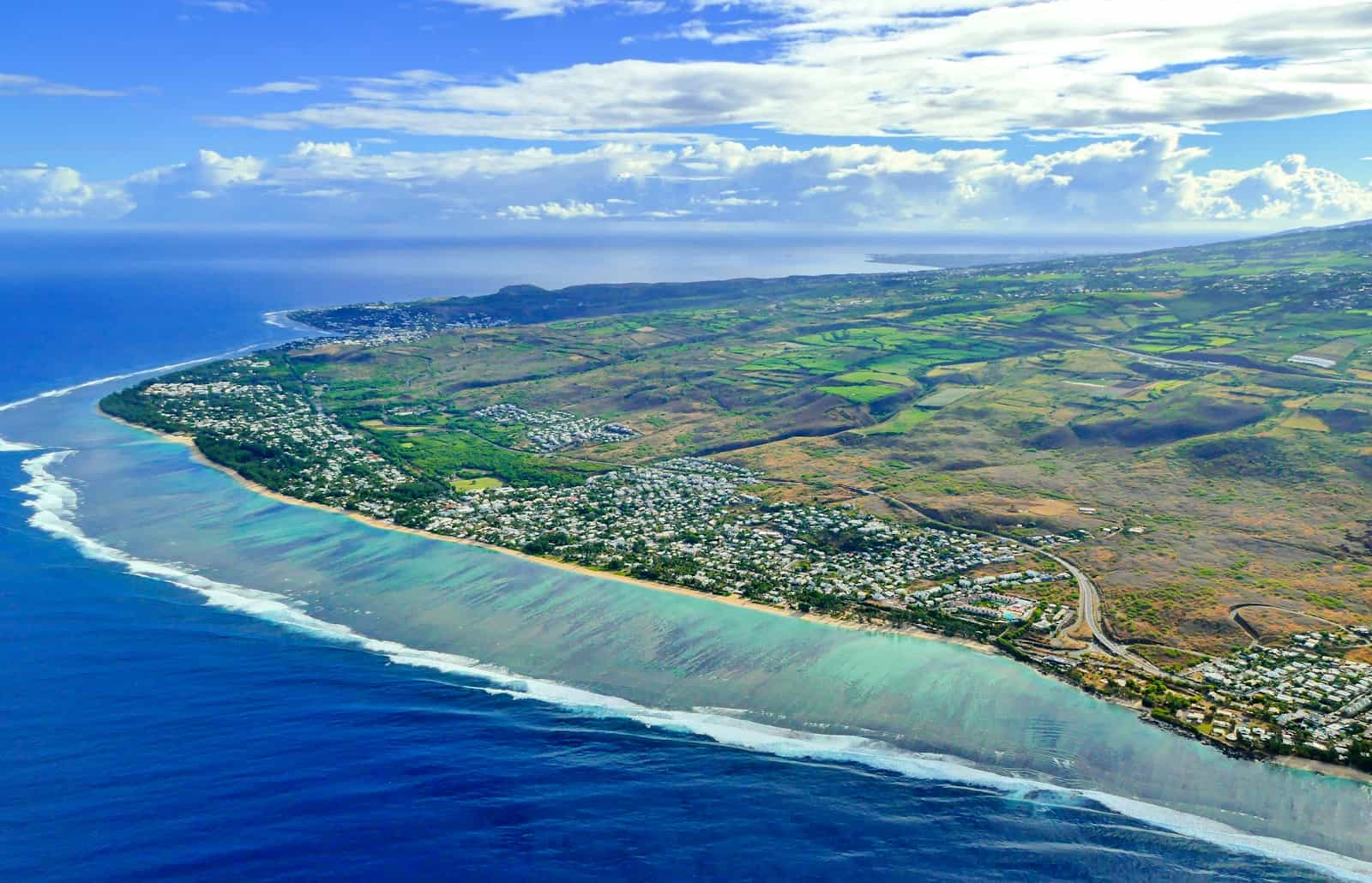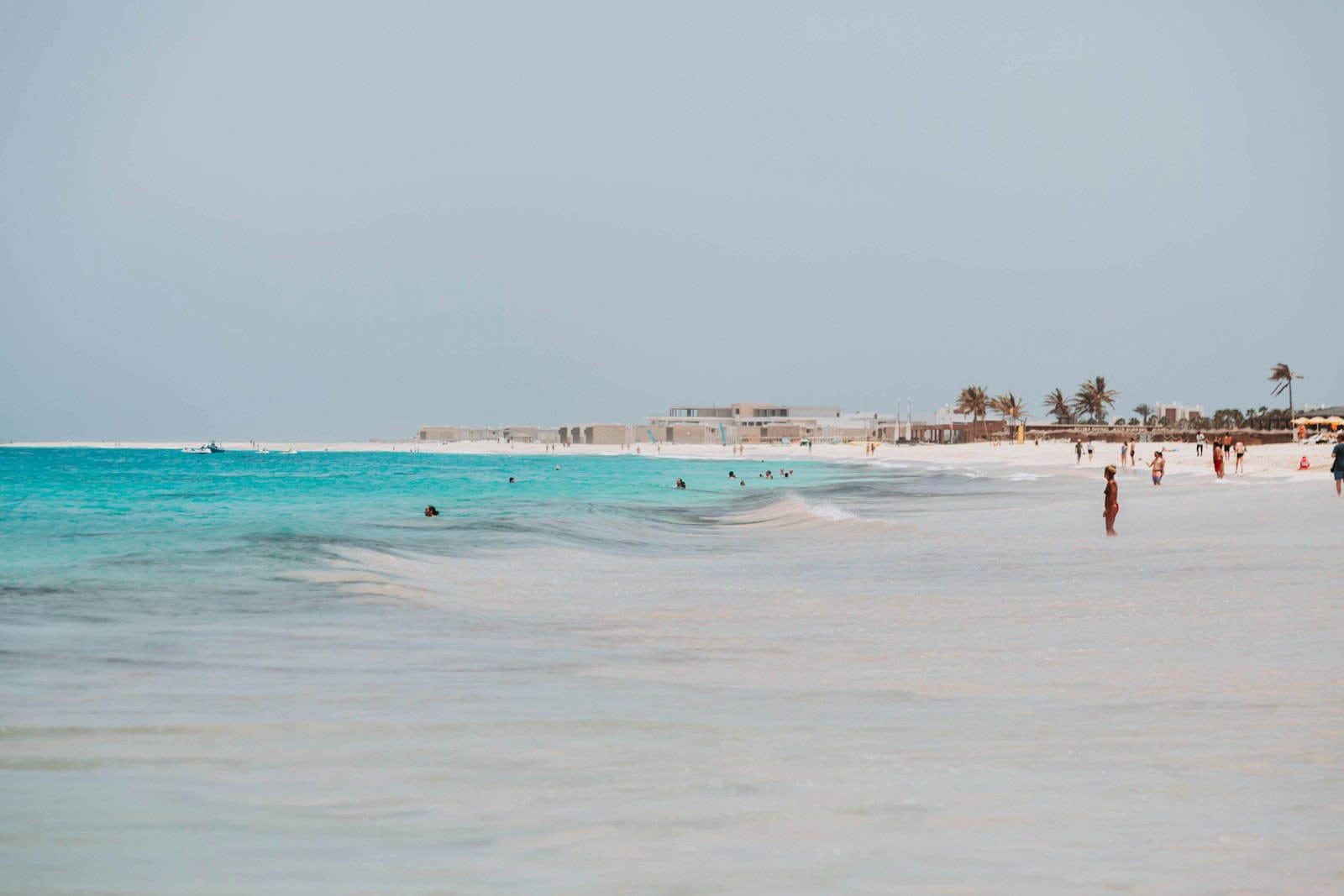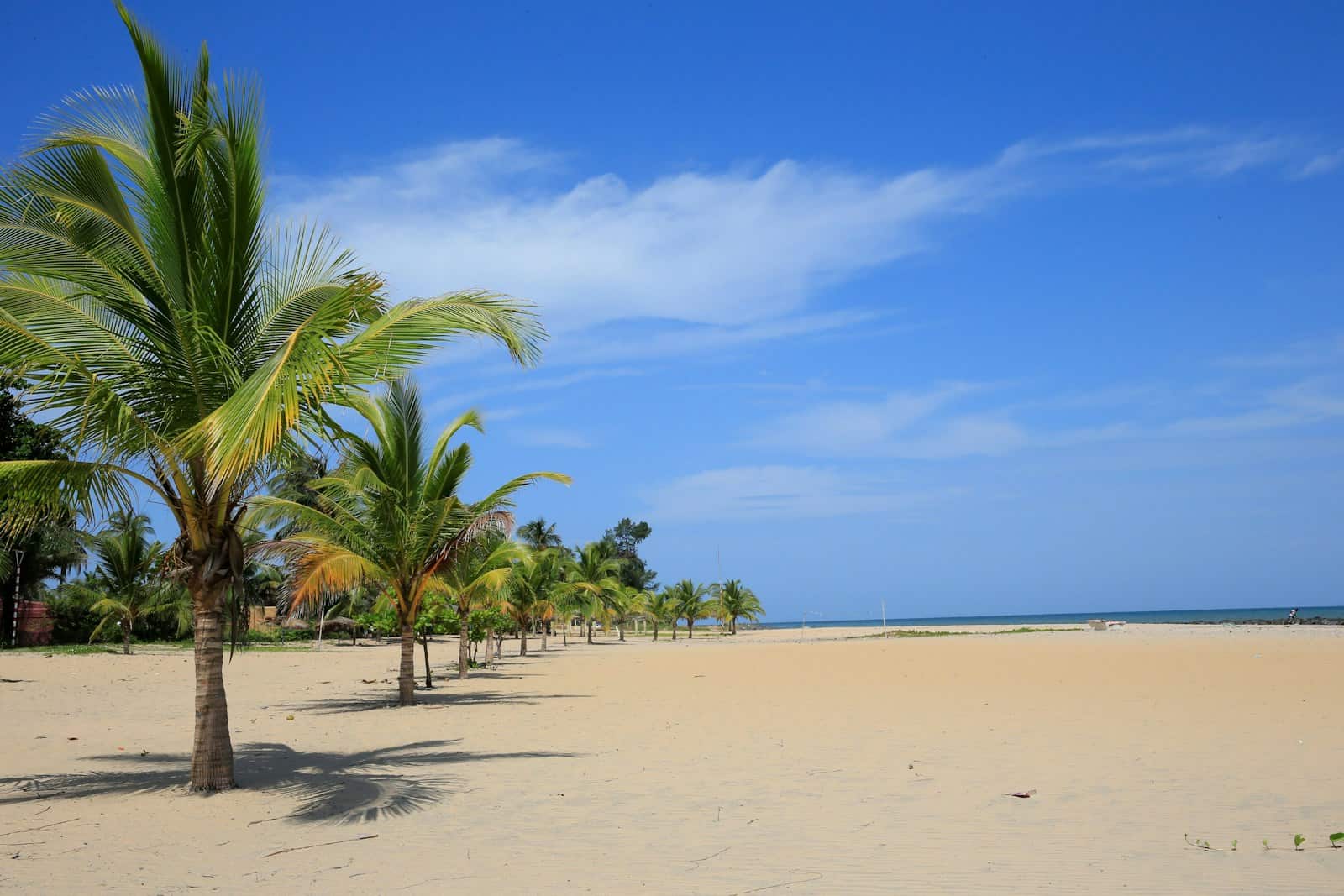Central Africa is Africa’s wild soul—a land of deep rainforests, mighty rivers, and resilient cultures living in harmony with nature. Less visited than East or Southern Africa, this region is a sanctuary for adventurers, conservationists, and those seeking to experience Africa at its most raw and untouched.
From the Congo River basin to volcanic peaks and elusive wildlife, Central Africa invites you to explore its powerful landscapes and rich traditions. This guide covers all countries in the region, offering cultural context, travel tips, and unforgettable highlights.
Countries to Explore in Central Africa
Angola | Cameroon | Equatorial Guinea | Gabon | São Tomé and Príncipe
💡Quick Facts:
Destination: Central Africa
Continent: Africa
Country: Multiple (Central African region)
Administrative Division: N/A (Regional grouping)
City: N/A (Includes capitals like Bangui, Yaoundé, Libreville)
Area: ~6,640,000 km² (2,563,376 mi²) — Approximate regional total
Population: ~185 million (2024 est.)
Density: ~28 people/km² (varies by country)
Capital: N/A — Regional (Major cities include Kinshasa, Yaoundé, Libreville, Bangui, Brazzaville)
Regions/Subregions:
– Cameroon
– Central African Republic
– Chad
– Republic of the Congo
– Democratic Republic of the Congo (DRC)
– Equatorial Guinea
– Gabon
– São Tomé and Príncipe (geographically Central Africa)
Official & Regional Languages: French, Portuguese, Spanish, Sango, Fang, Lingala, Kikongo, Swahili (country-dependent)
Currency: Varies — CFA Franc (XAF), Congolese Franc (CDF), São Tomé and Príncipe Dobra (STN), Equatorial Guinean Franc
Time Zone(s): GMT+1 to GMT+2
Airports: Major hubs — N’Djamena (NDJ), Douala (DLA), Brazzaville (BZV), Kinshasa (FIH), Libreville (LBV), Malabo (SSG), Bangui (BGF)
Climate: Tropical rainforest, tropical savanna, equatorial — wet and dry seasons vary
Known For: Congo Basin Rainforest, wildlife reserves, river systems (Congo River), unique pygmy cultures, oil & gas industries, volcanic landscapes
🛂Arrival Info:
– Entry requirements vary by country (visa often required in advance)
– Few visa-free countries (some regional agreements like CEMAC)
– Equatorial Guinea, Chad, and CAR often require pre-arranged visas
– Cameroon and Gabon offer limited e-Visa services
– São Tomé and Príncipe allows visa-free entry for EU, USA, Canada
– Official Visa Portals: Country-specific (e.g., Gabon e-Visa Portal, Equatorial Guinea Immigration)
💉Health Info:
– Recommended Vaccines: Yellow Fever (mandatory), Hepatitis A & B, Typhoid, Meningitis, Rabies (for extended stays), Polio booster
– Malaria risk is high; prophylaxis strongly advised
– Ebola outbreak history in DRC — check active advisories
– Medical facilities limited outside capitals
– Travel insurance with evacuation coverage is essential
– Major hospitals in capitals (Kinshasa, Libreville, Yaoundé)
✅ Check travel insurance options for travel emergencies, delays, and medical needs abroad — Get coverage here
✅ Stay Informed with Official Updates: WHO – International Travel & Health | CDC – Travel health updates
🚨Travel Advisory:
– Varies by country; DRC and CAR often listed as “Level 3: Reconsider Travel”
– Chad and Republic of the Congo: Level 2 or 3 depending on region
– Gabon and São Tomé are considered safer with Level 1 or 2 advisories
– Regional conflicts, political instability, petty crime, and infrastructure limitations are risks
– Official Advisory Sources: U.S. State Dept, UK FCDO, Canadian Travel Advice
✅ Stay Informed with Official Updates: US Travel Advisory | UK Foreign Travel Advice
📅Holidays:
– Independence Day varies by country (e.g., Cameroon October 1, Gabon August 16)
– National Heroes and Martyrs Days (country-specific)
– Labour Day (May 1) — Pan-African observance
– Traditional and cultural festivals (e.g., Fang Culture Week in Equatorial Guinea)
– Seasonal religious observances: Eid, Christmas, All Saints Day
💰Visitor Info:
– Currency: Central African CFA Franc (XAF) for most; DRC uses Congolese Franc (CDF); São Tomé Dobra (STN)
– Exchange services mostly in capitals; limited rural access
– Credit card usage limited outside major hotels and expat zones
– Tipping customary for services (~10%)
– Cash-only zones prevalent in rural and remote areas
– Duty-free limits: Vary by country; standard import/export controls
– Average Daily Budget: Budget $60–100, Midrange $150–250, Luxury $300+
✈️Airports:
Douala (DLA) – Cameroon’s international hub
N’Djamena (NDJ) – Gateway to Sahel and Chad
Kinshasa (FIH) – Major hub in DRC
Libreville (LBV) – Entry to Gabon and coastal rainforests
Bangui (BGF) – Primary airport in CAR
– Regional services limited; domestic flights unreliable outside capitals
– Main carriers: Camair-Co, Congo Airways, Air Gabon, Equatorial Guinea Airlines
✅ Delayed or canceled flight? Check if you’re eligible for compensation
🚍Transport:
– Intra-city: Taxis, moto-taxis (common but safety varies), shared minibuses
– Intercity: Limited rail networks (Congo, Gabon), long-distance buses, small charter flights
– River transport significant in DRC and Congo (Congo River routes)
– Roads often in poor condition; 4×4 vehicles recommended for remote travel
– IDP (International Driving Permit) recommended for car rentals
– Common scams: inflated taxi fares, counterfeit transport tickets
✅ Book reliable airport transfers and in-city rides in advance. Reserve your ride here
📶Connectivity:
– Mobile SIM cards widely available; MTN, Airtel, Orange (country-dependent)
– Mobile coverage decent in cities, weak or absent in rural interiors
– Public Wi-Fi limited to hotels, some cafés in major cities
– eSIM services rare; physical SIM preferable
– High roaming costs; local SIM cards advised
✅ Stay connected abroad with affordable eSIM data packs. Get your eSIM here
📜Laws & Etiquette:
– Drinking age varies (18–21); alcohol laws relaxed in urban areas
– LGBTQ+ rights: Varies — generally conservative, legal in Gabon, illegal in Chad, Equatorial Guinea
– Modest dress code recommended, especially in rural and religious areas
– Photography restrictions around government and military sites
– Greeting customs important; handshakes and respect for elders emphasized
🛡️Emergency Info:
– Emergency Numbers vary (often inconsistent or unavailable in rural areas)
– U.S., UK, and EU embassies only in select capitals (e.g., Libreville, Kinshasa)
– Regional traveler assistance is minimal; expat networks provide informal support
– Official Police services present but limited outside main cities
– Check local contacts upon arrival through hotels or travel agencies
✅ Use embassy locator tools: Embassies Worldwide
🌦️Weather:
– Tropical rainforest climates near equator (Congo Basin, Gabon, Equatorial Guinea)
– Savanna and semi-arid zones in northern Chad, CAR
– Wet season: March–June, September–November (varies by latitude)
– Dry season: December–February, July–August
– High humidity year-round; temperatures range 23°C–32°C (73°F–90°F)
– Flooding risk during wet seasons; poor road conditions common
✅ Stay prepared—check the weather forecast for your destination — Weather Forecast
What Makes Central Africa Unique
Central Africa is defined by its:
- Biodiversity: Lush equatorial forests that house gorillas, forest elephants, and rare birds
- Hydrology: The Congo River and its tributaries form one of the world’s largest freshwater systems
- Cultural Depth: Home to Bantu civilizations, pygmy hunter-gatherers, and centuries-old tribal customs
- Untamed Spirit: Remote national parks, active volcanoes, and largely undeveloped landscapes
This is Africa for explorers: immersive, unpredictable, and unforgettable.
Best Time to Visit Central Africa
This equatorial region stays warm year-round, but rain can affect travel significantly.
- Best Months:
- June–September: Drier period, better for trekking and park visits
- December–February: Short dry season; good for wildlife
- Avoid:
- March–May and October–November (heavy rain can make roads impassable)
Due to low infrastructure in many areas, always check seasonal road and flight conditions before finalizing your plans.
Countries of Central Africa: Full Breakdown
Below is a complete guide to each Central African nation, with highlights and practical insights:
1. Cameroon
Why Go: Known as “Africa in miniature,” Cameroon packs an entire continent’s diversity into one country.
- Trek Mount Cameroon, the highest peak in West Africa
- Explore Limbe’s black sand beaches and volcanic coast
- Visit Waza National Park or birdwatch in the Bamenda Highlands
Tip: French and English are both official languages. The Anglophone Northwest and Southwest regions have ongoing tensions—check travel advisories.
2. Gabon
Why Go: A hidden gem of eco-tourism, Gabon is where rainforests meet the sea.
- Walk with forest elephants on the beach in Loango National Park
- Spot gorillas in Moukalaba-Doudou National Park
- Surf or unwind in the coastal capital, Libreville
Tip: Gabon is safe and peaceful. Eco-lodges are limited—book early and travel with certified operators.
3. Republic of the Congo (Congo-Brazzaville)
Why Go: Often confused with its larger neighbor, this Congo offers intimate rainforest adventures.
- Trek for gorillas in Odzala-Kokoua National Park
- Cruise the Sangha River on dugout canoes
- Explore the quiet capital, Brazzaville, with its colonial charm
Tip: This is one of Africa’s most underexplored regions—best visited on guided eco-tours.
4. Democratic Republic of the Congo (DRC)
Why Go: Wild, vast, and complex, DRC is home to some of Africa’s most dramatic nature.
- Climb Mount Nyiragongo, an active volcano with a lava lake
- Trek to see Eastern Lowland gorillas in Kahuzi-Biega
- Witness the Congo River’s mighty flow in Kinshasa
Tip: Travel requires visas, permits, and careful planning. Safety and logistics are major concerns—use trusted tour providers.
5. Central African Republic (CAR)
Why Go: Remote and little visited, CAR is a place of forests, wildlife, and tribal culture.
- Spot forest elephants and gorillas in Dzanga-Sangha Reserve
- Meet local BaAka people and learn traditional forest survival skills
- Visit Boali Falls or paddle the Ubangi River
Tip: Travel is extremely challenging due to infrastructure and political instability. Visit only with vetted NGOs or eco-tour groups.
6. Equatorial Guinea
Why Go: Africa’s only Spanish-speaking country blends tropical landscapes with oil wealth.
- Explore colonial Malabo and its volcano backdrop
- Hike in Monte Alén National Park, home to chimpanzees and waterfalls
- Visit Bioko Island’s turtle nesting sites and sandy beaches
Tip: Visa policies are strict. Tourism is small but growing—book accommodations in advance.
7. São Tomé and Príncipe
Why Go: A paradise of cacao plantations, crater lakes, and coral-filled coves.
- Tour organic chocolate farms and plantations
- Dive or snorkel in Obô Natural Park’s pristine waters
- Hike to Pico Cão Grande, a dramatic volcanic spire
Tip: Portuguese is spoken, and the islands are safe, eco-friendly, and ideal for slow travel.
8. Chad (Often considered Sahelian-Central Africa)
Why Go: For adventurous travelers, Chad offers raw desert beauty and rich nomadic traditions.
- Explore the alien-like landscapes of the Ennedi Plateau
- Visit Zakouma National Park, one of Africa’s wildest safaris
- Meet the Toubou people and travel ancient caravan routes
Tip: Travel is limited and challenging. Zakouma is best accessed via charter flights and trusted operators.
Cultural Highlights & Local Experiences
- Pygmy Forest Traditions: Learn hunting, music, and herbal wisdom from BaAka and Mbuti groups
- Spanish & Portuguese Colonial Heritage: Found in Equatorial Guinea and São Tomé
- Spiritual Rituals: Indigenous practices blend with Catholicism and Islam
- Markets & Music: Lively scenes in Libreville, Brazzaville, and Douala
Nature & Outdoor Adventures
- Gorilla & Chimpanzee Trekking: Odzala (Congo), Kahuzi-Biega (DRC), Monte Alén (EG)
- Volcano Hikes: Mount Nyiragongo and Mount Cameroon
- Canoeing & River Trips: Congo, Sangha, Ubangi Rivers
- Pristine Beaches: São Tomé, Equatorial Guinea, Cameroon’s Kribi
Central African Cuisine: Earthy, Spicy & Local
- Cassava & Plantains: Starches like fufu, batôn de manioc, and fried bananas
- Grilled Fish & Bushmeat: Popular in river towns and rural areas
- Peanut Stews & Okra Sauce: Common across the region
- Local Drinks: Palm wine, millet beer, and cane alcohol in village markets
Each country has its own spins—with Portuguese, Spanish, and French influences creating fusion dishes especially on the coast.
- Loango National Park, Gabon — Surfing hippos and wild elephants on the beach
- Pico Cão Grande, São Tomé — A mystical volcanic needle
- Odzala-Kokoua, Republic of the Congo — One of Africa’s best gorilla parks
- Ennedi Plateau, Chad — Rock arches and desert wildlife
- Dzanga Bai, CAR — “Elephant village” in the forest clearing
Travel Tips, Safety & Etiquette
- Visas: Most countries require visas in advance—some are difficult to obtain
- Vaccines: Yellow fever is mandatory; malaria prevention essential
- Safety: Travel with guides, avoid isolated border areas, and monitor advisories
- Etiquette:
- Greet respectfully—handshakes or bows
- Ask permission before taking photos
- Modesty and humility are valued traits in interactions
Budgeting & Transportation
Budget Travel:
- Shared taxis and local markets make for affordable travel in cities
- Rural travel is limited; often higher costs due to poor roads and availability
Mid-Range:
- Some eco-lodges and guided packages available, especially in Gabon and São Tomé
Luxury:
- Gorilla lodges in Congo and boutique hotels on Bioko and Príncipe offer luxury stays
Getting Around:
- Flights are often required due to poor roads
- River boats operate in Congo and CAR
- Domestic travel can be slow and unpredictable—build flexibility into your plans
Final Planning Insights
Central Africa rewards those who go beyond the usual. It’s a destination for immersive, challenging, and deeply enriching travel. Conservation is central to tourism here—support ethical operators and community-led efforts.
- Always travel with a vetted guide in remote or politically unstable countries
- Plan extra time for logistics—flights and roads can be unreliable
- Travel insurance is essential
→ Central Africa for gorilla trekking, island escapes, and forest expeditions. Continue your journey in the Explore Africa Guide

